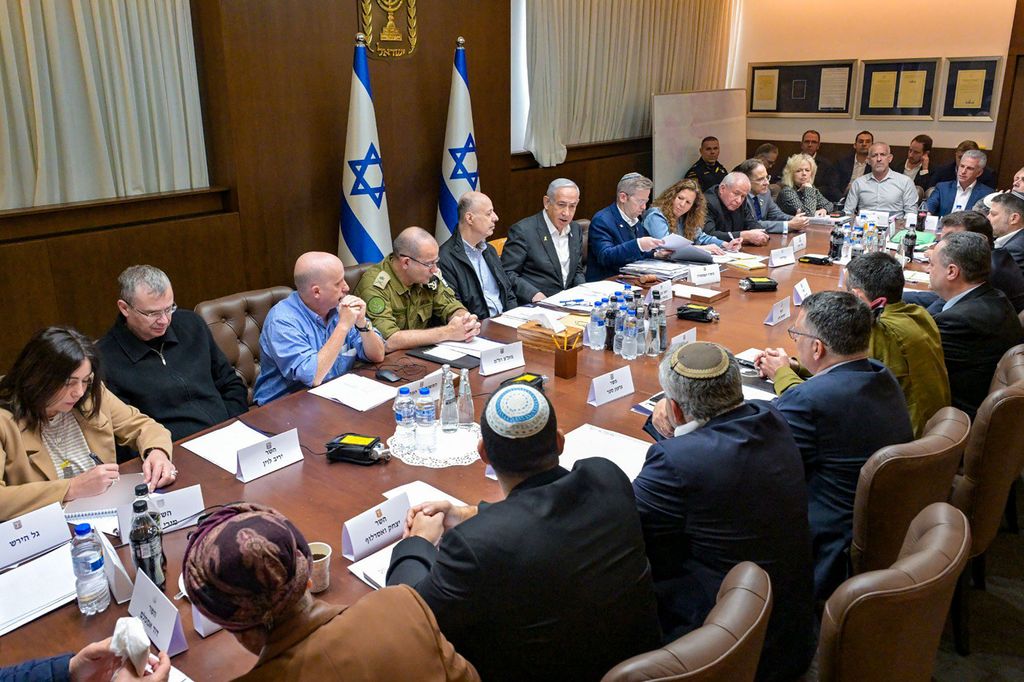
In a pivotal and contentious decision, the Israeli government’s security cabinet approved a plan to expand the war by taking control of Gaza City. The move, announced early Friday after an exhaustive ten-hour deliberation, saw a majority of Prime Minister Benjamin Netanyahu’s security cabinet back his proposal, despite significant opposition and the explicit recommendations of the Israeli military.
This strategic approval sets a course for a new phase of the conflict, with the stated goal to “achieve a decisive victory over Hamas,” the organization that orchestrated the October 7, 2023, attack on Israel that ignited the current hostilities. The plan also includes provisions for the delivery of humanitarian aid to the civilian population, explicitly “outside the combat zones,” a critical aspect given the dire conditions within the enclave.
Beyond the immediate military objective, the cabinet concurrently endorsed five core principles intended to guide the conclusion of the war. These include the disarming of Hamas, the return of all 50 Israeli hostages—20 of whom are believed to be alive—the demilitarization of Gaza, the establishment of Israeli security control over the entire enclave, and the creation of an alternative civilian administration there. Notably, this proposed administration would exclude both Hamas and the Palestinian Authority, the Western-backed body that currently exerts limited governance in parts of the occupied West Bank.
While the announcement marked a significant shift, it appeared to fall short of explicitly declaring Israel’s intention to take full control of the entire Gaza Strip, a more expansive aim that Prime Minister Netanyahu had articulated previously. In comments made on Thursday to Fox News, ahead of the security cabinet meeting, Mr. Netanyahu had stated, “We intend to” take over all of Gaza, emphasizing it would “assure our security,” remove Hamas from power, and facilitate the transfer of civilian administration to “another party.” He also suggested Israel was not interested in permanent control, adding, “We don’t want to keep it. We don’t want to govern it. We don’t want to be there as a governing body. We want to hand it over to Arab forces.”

However, facing considerable backlash from allies following the cabinet’s decision, Mr. Netanyahu later softened his rhetoric. On Friday, he clarified his position in a social media post, asserting, “We are not going to occupy Gaza – we are going to free Gaza from Hamas.” He reiterated that “Gaza will be demilitarized, and a peaceful civilian administration will be established, one that is not the Palestinian Authority, not Hamas, and not any other terrorist organization,” framing this as a means to “help free our hostages and ensure Gaza does not pose a threat to Israel in the future.” The nuances of language are significant, as an occupying power would assume legal obligations to provide basic services to the population.
This decision marks a notable divergence from the counsel of Israel’s military leadership. Lieutenant General Eyal Zamir, the chief of staff of the Israeli military, had reportedly pushed back against the plan, raising concerns about the exhaustion and fitness of reserve forces. Furthermore, military officials privately expressed apprehension about the prospect of the military becoming solely responsible for governing millions of Palestinians, a complex and burdensome undertaking.
According to three Israeli security officials, the military leadership’s preference was for a new cease-fire agreement rather than an escalation of fighting. This internal discord between the government and the military reflects a pattern observed in earlier stages of the war, though the latest episode appeared to be the most significant such confrontation since General Zamir’s appointment in February 2025. Despite the reported internal disagreements, Mr. Netanyahu’s office affirmed that the Israeli military would ultimately implement any decision made by the security cabinet.
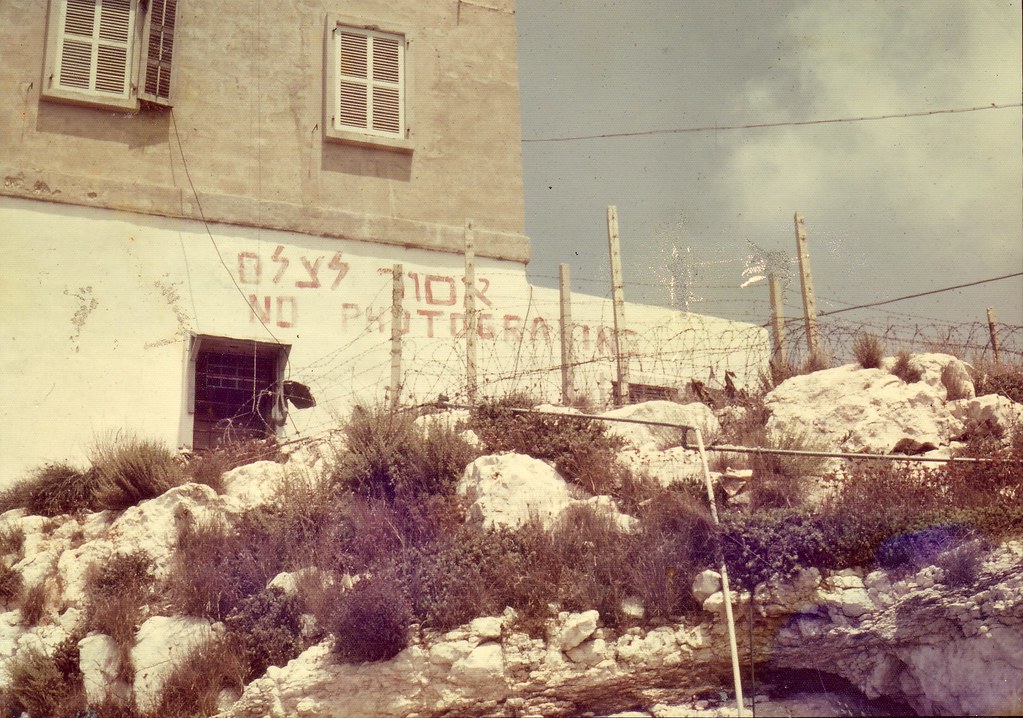
Satellite imagery, captured on Friday morning, provided a visual testament to the intensified military posture. Images from Planet Labs revealed a substantial buildup of Israeli military vehicles near the Nahal Oz crossing, a mere two miles from Gaza City. More than 100 vehicles were observed parked in a depot along the 1949 Armistice line, surrounded by defensive berms, indicative of preparations for a significant ground operation.
The military believes it could seize the remaining parts of Gaza, which constitute approximately 25 percent of the strip, within months. The Israeli military currently controls about 75 percent of Gaza, with the coastal strip stretching from Gaza City in the north to Khan Younis in the south being the main area outside its control. However, security officials cautioned that establishing a civilian governance system similar to that overseen in the Israeli-occupied West Bank would necessitate up to five years of sustained combat, signaling a potentially protracted engagement.
The cabinet’s decision has ignited a fresh wave of criticism from various quarters within Israel. Yair Lapid, the leader of the parliamentary opposition, voiced strong objections, telling reporters, “Conquering Gaza is a bad operational idea, a bad moral idea and a bad economic idea.” His sentiments underscore a broader concern among political opponents regarding the feasibility and ethical implications of the expanded military objective.
Former Israeli Prime Minister Ehud Olmert also vehemently criticized the plan, arguing it “is not going to save the hostages, which is going to cost the lives of many soldiers, and which is going to cause the lives of many non-involved Palestinians.” Mr. Olmert further asserted that the operation “will increase the number of crimes which will be committed not as part of a policy,” attributing the decision to what he called the current prime minister’s agenda, influenced by “messianic partners in the coalition government.” He described the move as a “political expediency,” reflecting what he claimed was “the universal consensus in Israel today.
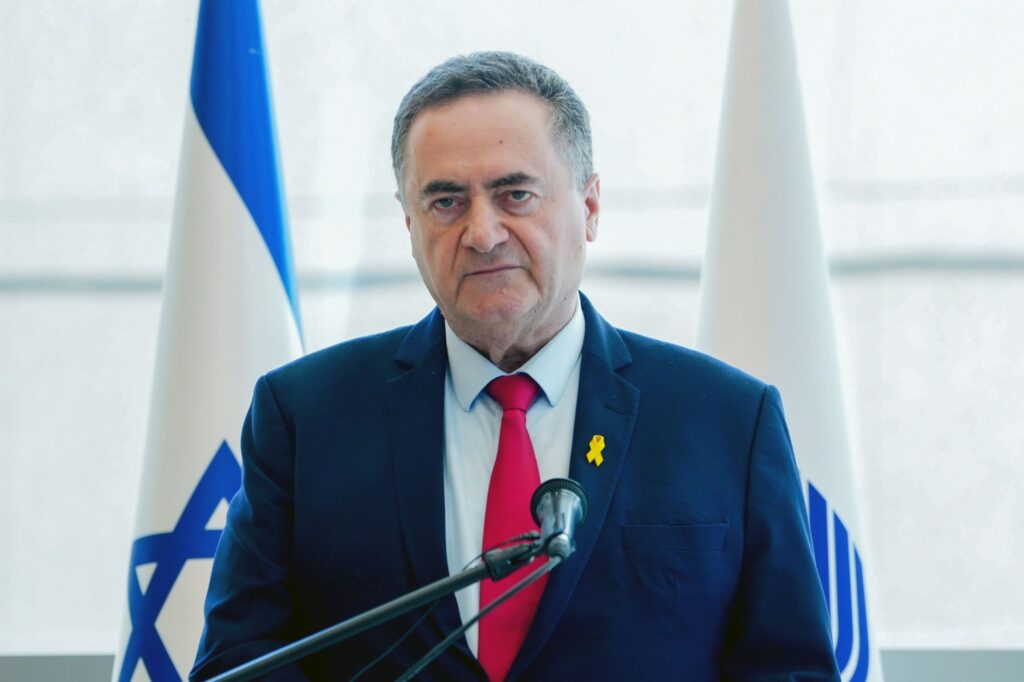
For the families of the hostages held by Hamas and Palestinian Islamic Jihad in Gaza, the prospect of an expanded military operation has deepened their anguish. They expressed profound worry that an intensified offensive could inadvertently lead to the deaths of their loved ones or prompt Hamas to execute them. Ruby Chen, the father of hostage Itay Chen, stated that the cabinet’s approval “just proves again the objective of dismantling Hamas supersedes the objective of releasing all the hostages,” adding, “It’s unfortunate. We feel like we are collateral damage.”
Elhanan Danino, whose son Ori was tragically killed by his captors a year ago when Israeli soldiers were operating near his holding tunnel, powerfully articulated these fears: “Hamas is a brutal terrorist organization, and they’ll kill hostages if the military comes near them.” He emphasized the constant peril faced by the captives, stating, “Every moment they are being held there — being starved — puts their lives at risk. I don’t want to see other hostages die the same way our son did.” Such testimonies underscore the agonizing dilemma faced by those whose loved ones remain in captivity.
The profound despair among hostage families was vividly demonstrated when they held a Shabbat dinner protest outside the home of Israel Katz, the defense minister. Released hostage Iair Horn, whose brother Eitan remains in Gaza, conveyed the deep emotional toll, saying, “We missed so many Friday meals, and we’re still missing them. My brother Eitan is in captivity, our friends are still in captivity. Until they all return, you can’t call this Kabbalat Shabbat.” He concluded, “Our family is completely broken, but we’ve become one big family. Until every one of the hostages returns, I won’t have a real Shabbat meal.”

Adding to the internal dissent, a reservist organization named “Soldiers for the Hostages” has renewed calls for soldiers to decline military orders to serve. This organization contends that further military operations in Gaza pose a serious risk to the remaining 50 hostages. Yotam Vilk, a captain in the reserves and a member of the group, articulated a profound sense of betrayal by the government, writing in an op-ed, “I can’t stay silent. Not after I saw with my own eyes the human toll of any additional day in Gaza. Not after I saw what neglect and abandonment look like, and how a government willing to sacrifice all of us for the sake of its false promises looks like.”
Former IDF intelligence officer Michael Majer echoed this sentiment, expressing anger at Israeli politicians for not urging others to refuse service. He criticized lawmakers on social media, questioning, “Everyone says the war is pointless. Everyone says soldiers are sent to Gaza without any purpose. Do you care about your seats more than the lives of the soldiers?” These calls for refusal highlight a growing moral quandary within segments of the military and civil society.
The international reaction has been largely condemnatory, with numerous countries urging an immediate end to the nearly two-year war in Gaza. Middle Eastern nations, in particular, issued strong condemnations. Saudi Arabia’s Ministry of Foreign Affairs condemned Israel’s “adamancy to commit the crimes of starvation of civilians, beastly conduct, and ethnic cleansing against our Palestinian brethren,” asserting that “the inhumane ideas and decisions often gratuitously adopted by the Israeli occupation authorities prove, once again, that they do not understand the existential, historic, and legal relationship that our Palestinian brethren have to that land and that the Palestinian people have a right to it in accordance with international law and human rights.
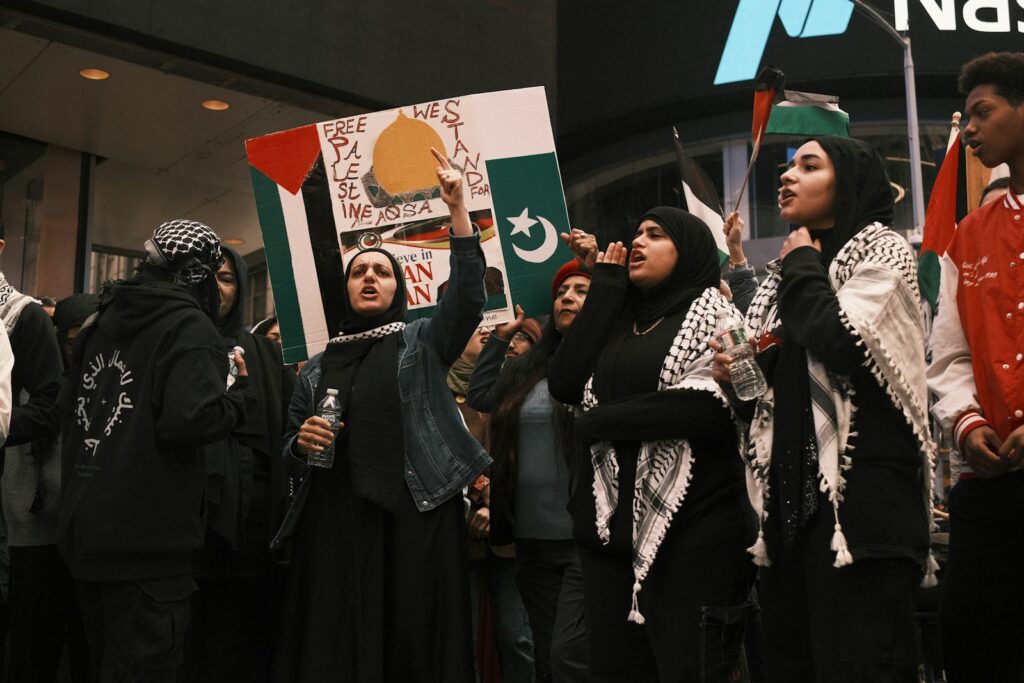
The United Arab Emirates’ ministry cautioned that the decision would lead to “catastrophic consequences, including further loss of innocent life and a worsening of the humanitarian crisis in Gaza.” Qatar’s Ministry of Foreign Affairs similarly condemned the move, calling for “firm opposition to Israel’s continued violations of international humanitarian law.” All three nations reiterated their support for a two-state solution as the ultimate path to peace.
European nations and Canada also registered their disapproval. France “condemns in the strongest terms” the war expansion plan, stating it “would in no way” contribute to Israeli security, including that of the hostages. The French Ministry of Foreign Affairs added that such actions “would constitute further serious violations of international law and lead to an absolute stalemate,” warning they “would undermine the legitimate aspirations of the Palestinians to live in peace in a viable, sovereign, and contiguous state, and pose a threat to regional stability.
Ireland, which formally recognized Palestinian statehood in May 2024, “unreservedly condemns” Israel’s plans, with Prime Minister Micheál Martin calling for a “peaceful resolution on the basis of a two-state solution.” He stated, “This shows a complete disregard for international law and will have catastrophic consequences for the civilian population of Gaza.” Canadian Prime Minister Mark Carney described the decision as the “wrong” move for Israel, arguing it would not alleviate the humanitarian situation and would “put the lives of the hostages at greater risk.”
Perhaps most significantly, Germany, Israel’s second-largest arms supplier after the United States, announced a halt to military equipment exports that could be used in Gaza. Chancellor Friedrich Merz stated his government would “not approve any exports of military equipment” to Israel until further notice. This marks a profound shift for Germany, which has historically maintained a policy of unquestioned backing for Israel due to its “Staatsräson,” or reason of state, rooted in its dark history of Jewish persecution. Mr. Merz indicated his government found it “increasingly difficult” to see how the release of remaining hostages, a ceasefire, and the disarmament of Hamas could be achieved through more fighting.
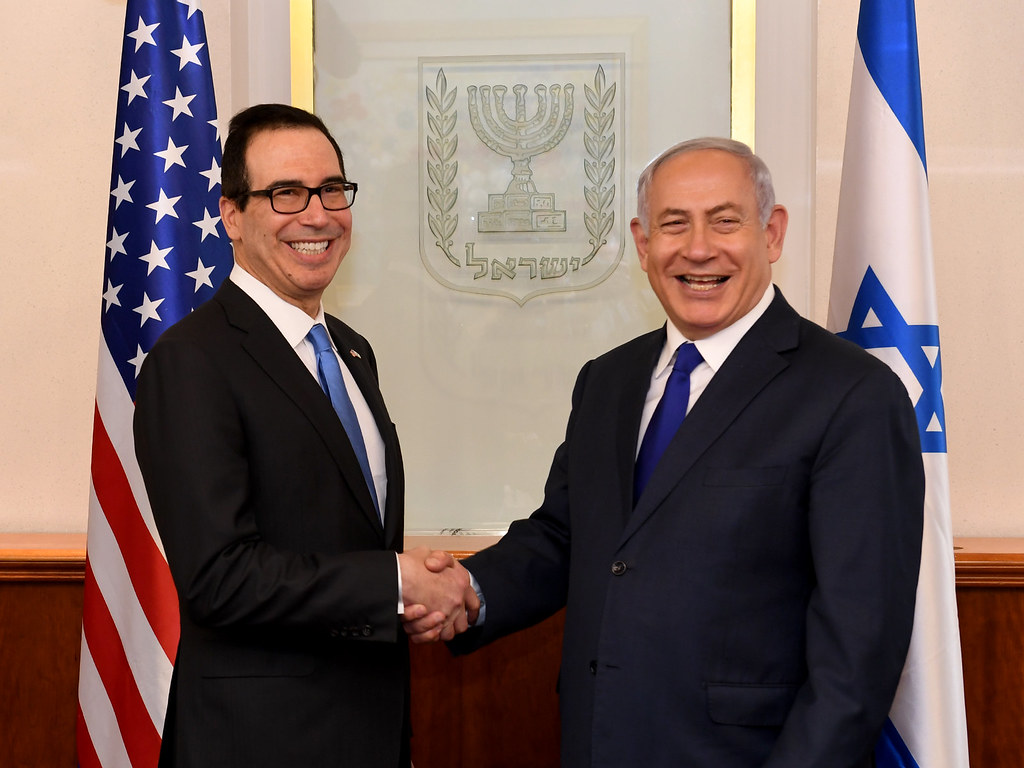
Prime Minister Netanyahu, in turn, expressed disappointment to Chancellor Merz, stating, “Instead of supporting Israel’s just war against Hamas, which carried out the most horrific attack against the Jewish people since the Holocaust, Germany is rewarding Hamas terrorism by embargoing arms to Israel.” This exchange highlights the escalating tension between Israel and some of its staunchest allies, indicating a significant diplomatic ramification of the cabinet’s decision, as noted by Jeremy Issacharoff, a former Israeli ambassador to Germany.
United Nations Secretary-General António Guterres conveyed his “grave alarm” over the Israeli government’s decision, describing it as a “dangerous escalation” that “risks deepening the already catastrophic consequences for millions of Palestinians.” He warned it “could further endanger more lives, including of the remaining hostages,” reiterating his urgent pleas for a permanent ceasefire, “unimpeded” humanitarian access across Gaza, and the immediate release of all remaining hostages. A statement from his spokesperson also called upon Israel to abide by international law.
For the two million Palestinians in Gaza, many of whom have already been displaced into tents, makeshift shelters, and apartments in the few areas not under Israeli control, the possibility of an escalated operation has intensified existing fears. Mukhlis al-Masri, a 34-year-old displaced from northern Gaza now in Khan Younis, expressed profound trepidation: “They’re talking about occupying areas that are packed with so many people. If they do that, there will be incalculable killing. The situation will be more dangerous than anyone can imagine.”
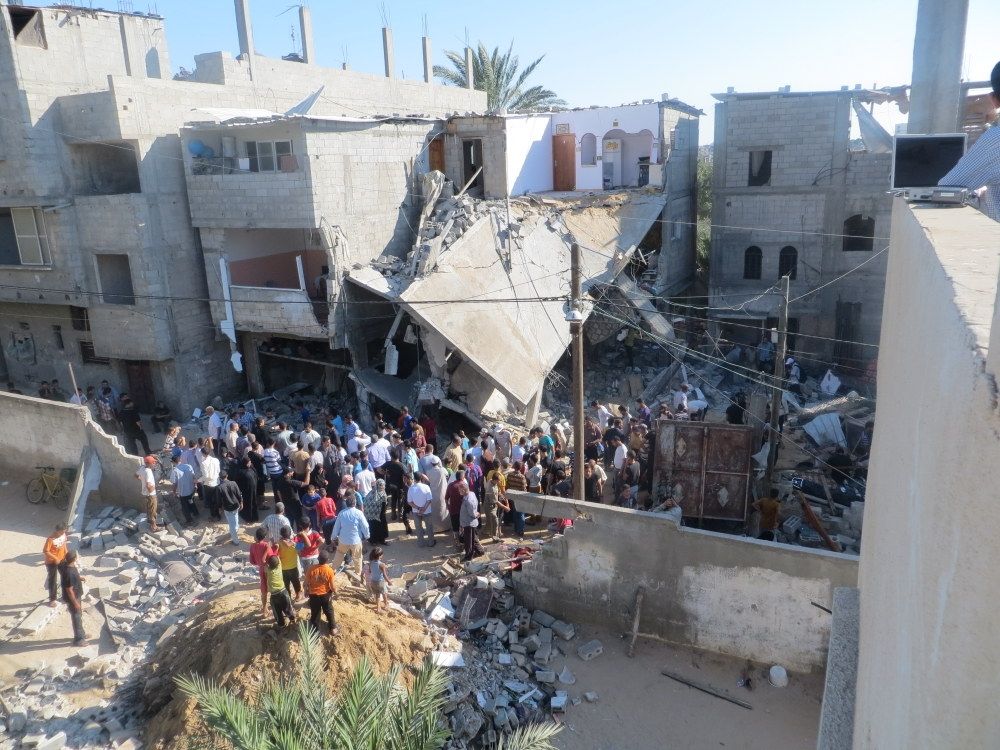
Al-Masri recounted a recent tragedy, stating that his brother, brother-in-law, and four nephews and nieces were killed, and his sister seriously wounded, when a school turned shelter was bombed in Khan Younis. The Israeli military requested more information about the bombing but offered no further comment, maintaining that its strikes target militants and their weapons infrastructure, asserting that Hamas is embedded within civilian areas.
The humanitarian crisis is further exacerbated by the perilous nature of aid distribution. A video circulated showing a balcony collapsing in Gaza City under the weight of Palestinians scrambling to reach an airdropped aid package. The United Nations and other aid groups have consistently warned that airdrops are dangerous, costly, and insufficient, citing “crowding and stampedes” and injuries from parachutes falling directly on homes or tents. The Palestinian Red Crescent Society’s Al-Saraya Field Hospital reported receiving nine people, including three children, injured from falling aid parachutes on another street in Gaza City. This desperate search for aid, one Gazan told CNN, leads to a profound sense of humiliation: “We are not dogs. We’d rather die of hunger with dignity than die in humiliation and filth.”
The healthcare system in Gaza teeters on the brink of collapse. Al-Aqsa Martyrs Hospital announced that its fuel supply is critically low, projected to sustain operations for only “a few more hours.” This imminent shortage threatens to force the closure of all vital functions, including surgical theaters, intensive care units, neonatal incubators, and ventilators, signaling a catastrophic blow to medical care in the besieged enclave.
The cabinet’s decision comes amidst a protracted impasse in ceasefire negotiations. Despite earlier optimism from US President Donald Trump that a ceasefire could be agreed upon “within the next week” at the end of June, the US abruptly pulled its negotiators four weeks later. The idea of an “all-or-nothing deal” for Gaza, involving the release of all hostages in exchange for Palestinian prisoners and an end to the war under specific conditions, was floated, with the alternative being a continued military campaign. However, talks remain deadlocked, with both Israeli and Hamas officials assigning blame for the stalemate.
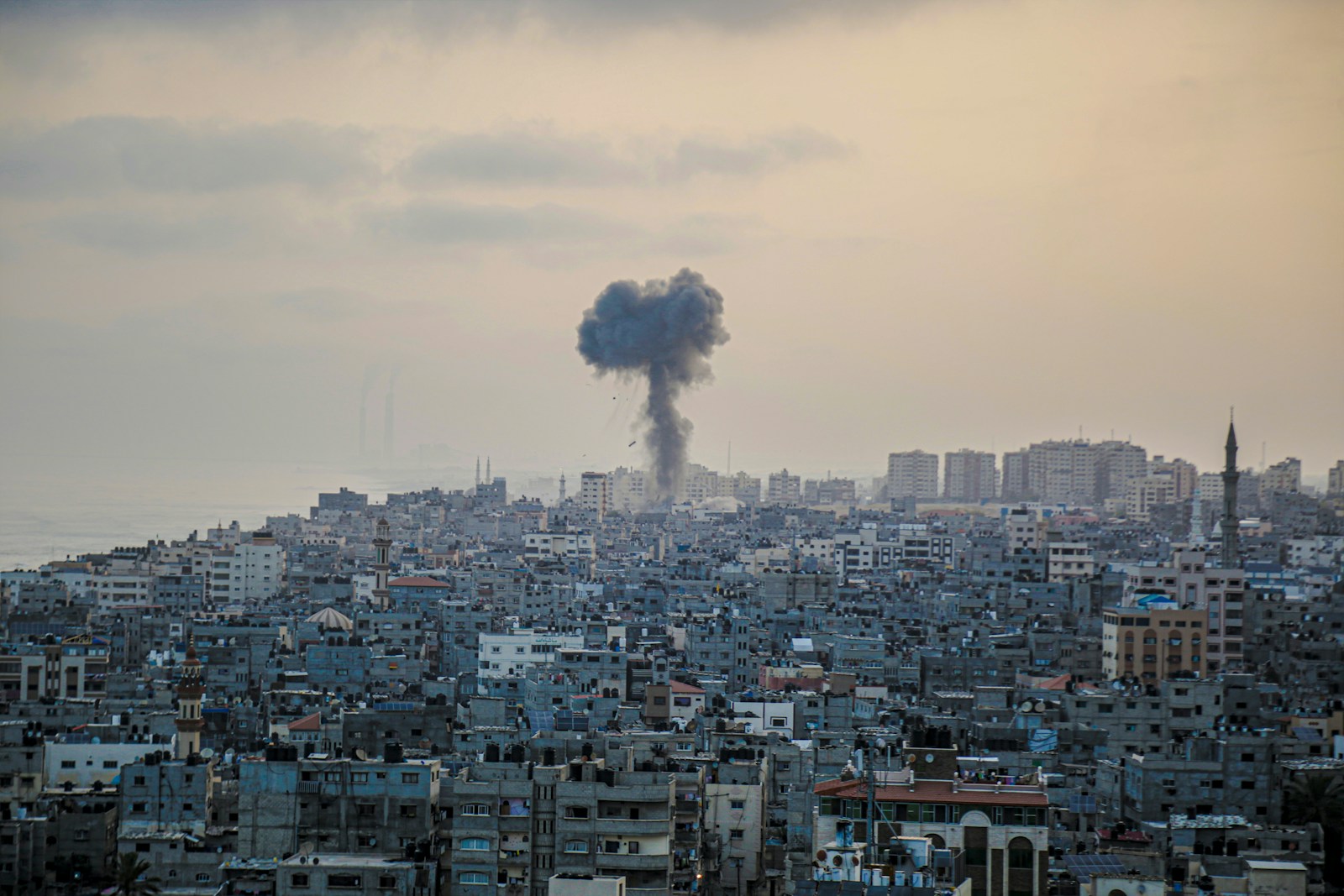
The Israeli Security Cabinet’s approval of the plan to take control of Gaza City marks a critical juncture in the conflict, one fraught with profound implications. The decision, made against the counsel of Israel’s own military and in the face of widespread international condemnation, underscores the deep divisions within Israel and the intensifying humanitarian crisis in Gaza. As the military prepares for an operation that could displace tens of thousands more Palestinians and potentially span several months, the path ahead appears increasingly complex and perilous, with the fate of hostages, civilians, and regional stability hanging precariously in the balance. This move amplifies the urgency for a resolution to the protracted conflict, even as the immediate trajectory points toward further escalation and suffering.



